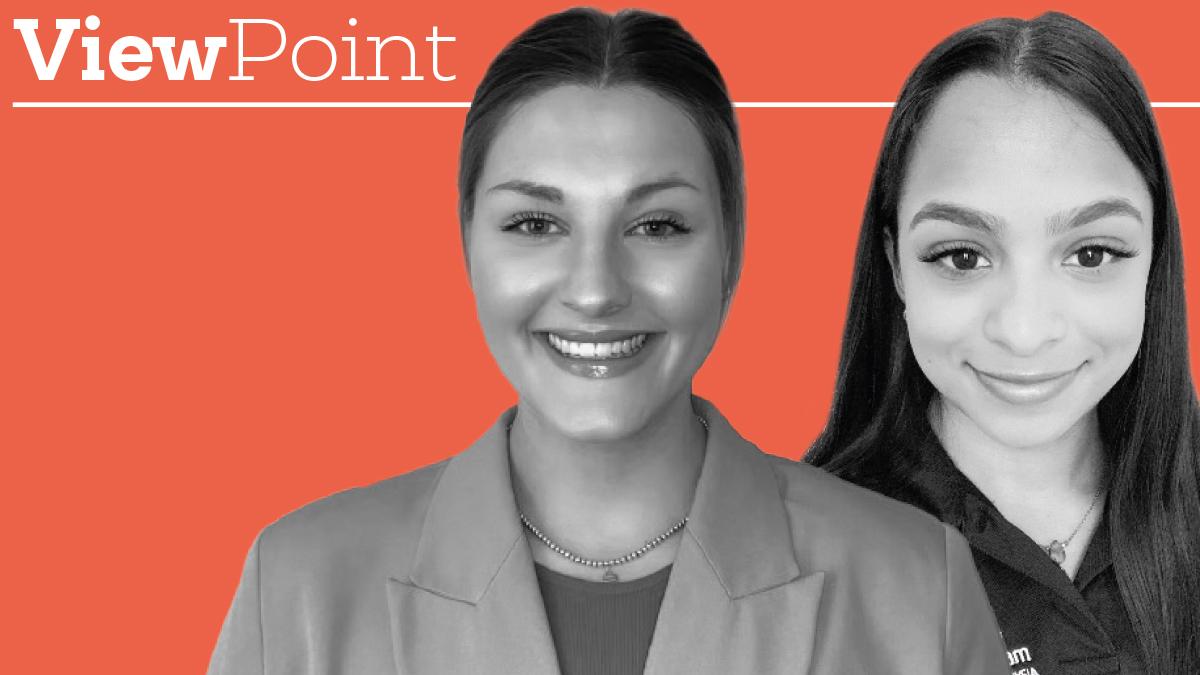Shared learning is beneficial for physios and sports rehabbers say Grace Cain and Kaya Simon, students from the University of Nottingham

Physiotherapy and sport rehabilitation are two professions that work within the same world, but in different ways. There are often more similarities than differences, but here at the University of Nottingham we get to embrace both practices by working so closely together.
In our first year, we are taught as one cohort, so everyone has an adequate knowledge and understanding of anatomy, physiology and MSK diseases and disorders.
The second year is when the professional differences are made clear through different modules, but we remain together for modules that can be shared, such as research methods and continuing professional development, to maintain the shared experience.
Learning together
Our third year is when we assemble through optional modules, placements and research projects. We are given the opportunity to choose what kind of practitioners we want to be through our chosen dissertation topics and the varying subjects of optional modules, and where our work is complementary, we have the option to co-deliver interdisciplinary presentations.
Our practical classes are conducted amongst a small, tight-knit cohort, and give us the opportunity to cultivate our manual and practical skills to a high level.
By being exposed to so much of each programme we’ve developed an in-depth understanding of how our courses are similar but also very different. It has also opened our eyes into to what working in a more public healthcare setting is like, as well as allowing us to consider working with different types of populations.
We believe that being exposed to shared elements of the programme has been a positive and valuable learning experience that has facilitated multidisciplinary learning from the onset of our degrees. It’s allowed us to collaborate across the three years and share innovative ideas and research amongst one another; something students elsewhere may not always have the opportunity to do so.
Our university is renowned for sport and has a sought-after injury clinic where students are given the opportunity to have placements working with several high-performance teams and athletes. These sports placements are a great way for physio and rehab students to work and learn together. It gives us the opportunity to become accustomed to working within a multidisciplinary team as we would in any clinical setting.
Creating community
Drawing on the contribution of each of the professions allows us to create optimal outcomes for patients in a variety of clinical and sporting settings. We hope to see more establishments, both educational and professional, creating more collaborative environments where the two professions can work so closely together.
Due to the close collaboration and learning between the two courses, we share a joint society, known as SUPRA (Student Union of Physiotherapy & Rehabilitation Association). In recent years the CSP have supported SUPRA activity by providing sponsorship that all student-led physiotherapy societies can apply for, where their course is accredited. With this support, our joint society is a brilliant opportunity for us to create a community of students allowing for networking, professional development and social connections, with a growing legacy of advocacy for interdisciplinary practice.
Championing connections
As part of SUPRA we help champion the work of the CSP by encouraging physiotherapy students to participate in all of the opportunities available including engagement with professional, regional and diversity networks. We have also contributed to CSP student social media takeovers and attended a national society networking event hosted by the CSP Student Reference Group. Both of these opportunities have been really useful platforms to showcase our joint work and connect with students at other universities.
Despite our differences, we are ultimately both professions that share the same overarching aim of helping patients with physical conditions to reach their goals and facilitate improvements in their quality of life.
We are incredibly lucky at our university that there is such strong unity between both course plans and we work hard to ensure that the student community continues to be a collaborative and supportive space for upcoming professionals. We hope to see this at other institutions too, and look forward to continuing this work as alumni of the University of Nottingham, and in our respective professions.
Grace Cain is a third year physiotherapy student at the University of Nottingham and SUPRA president, Kaya Simon is a third year sport rehabilitation student at the University of Nottingham and SUPRA sport rehabilitation course rep.
Number of subscribers: 1
